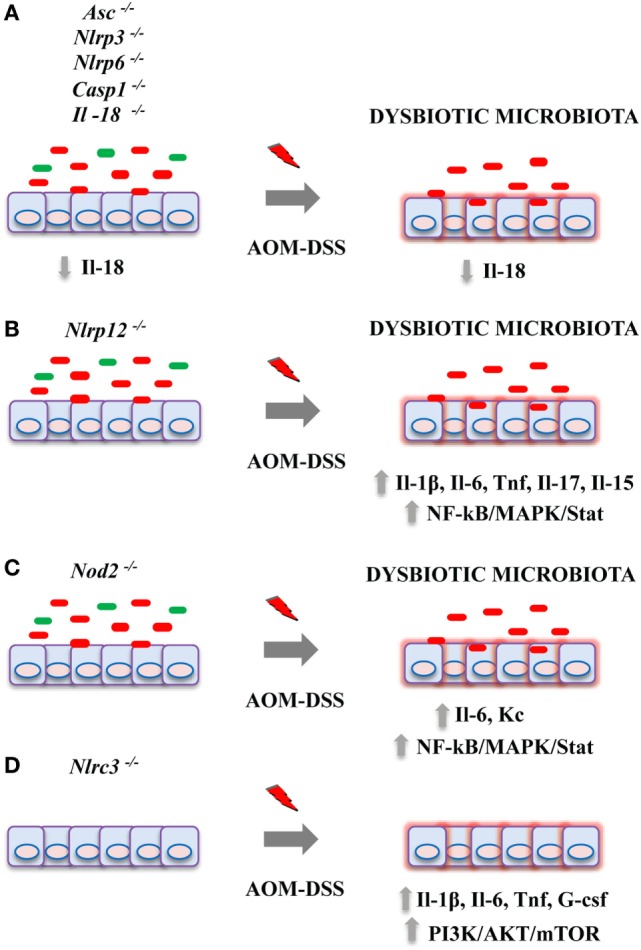Figure 1.

Effects of nucleotide-binding domain leucine-rich repeat containing (NLR) proteins deficiency on colitis-associated cancer (CAC) development in pre-clinical models. Genetic alterations in NLR proteins result in an increased tumor burden in azoxymethane (AOM)-dextran sulfate sodium (DSS) mouse model of CAC by acting on multiple mechanisms. (A) Deficiency for Asc, Nlrp3, Nlrp6, Casp1, or Il-18 genes led to a dysbiotic microbiota, reduced colonic Il-18 levels, and an impairment of intestinal tissue repair upon injury; (B) Nlrp12; and (C) Nod2 deficiency have been associated with an overgrowth of inflammatory bacteria, enhanced cytokine production, and activation of pro-tumorigenic pathways including NF-kB, MAPK, and Stat3. (D) Knockout for Nlrc3 led to increased colonic inflammation and mTOR signaling activation.
